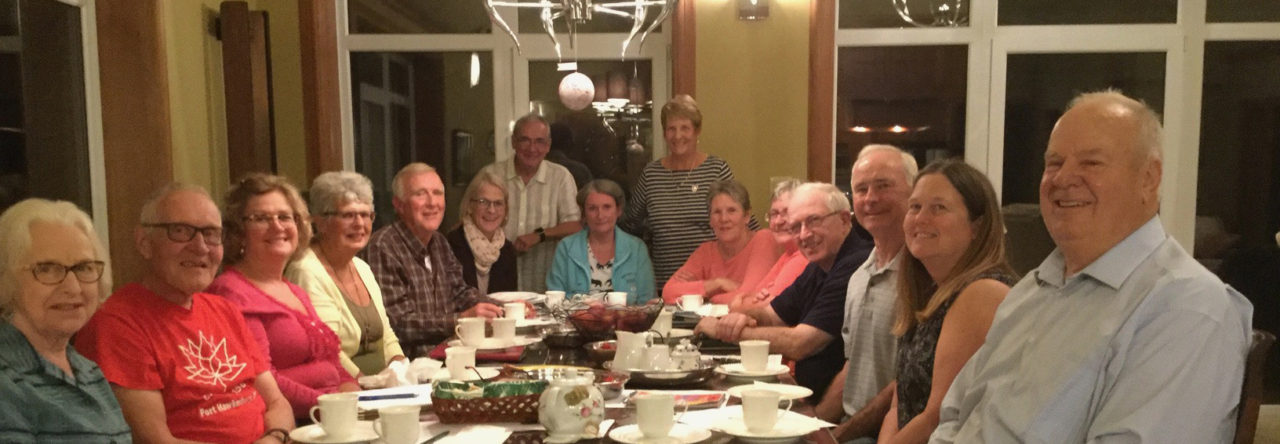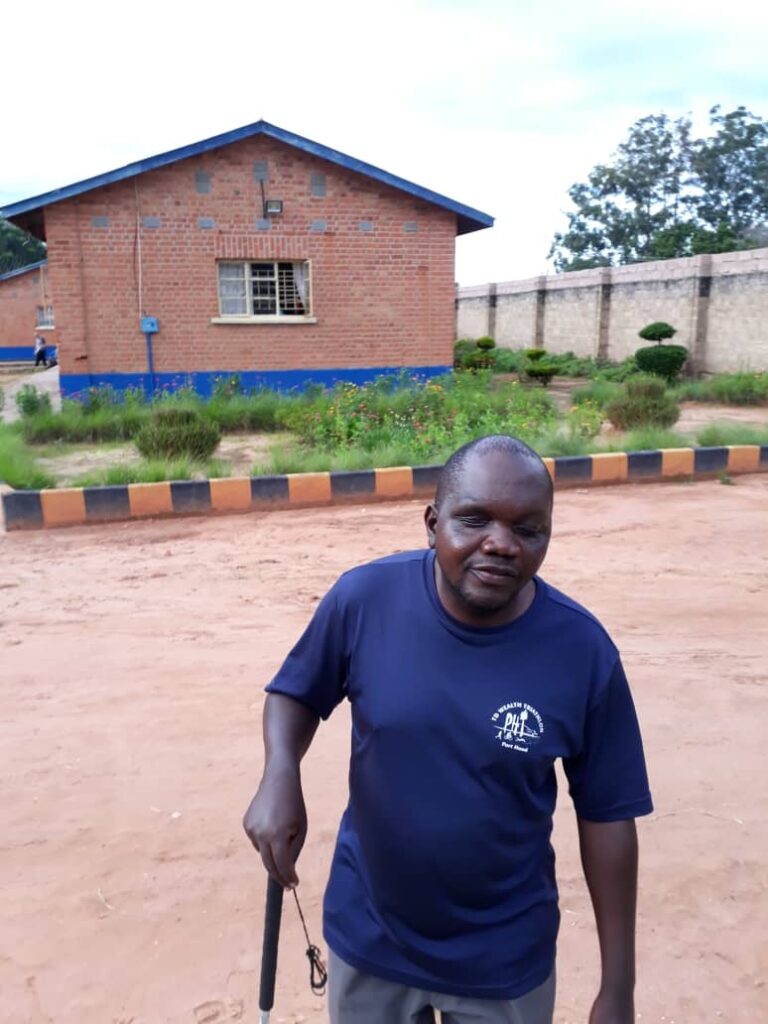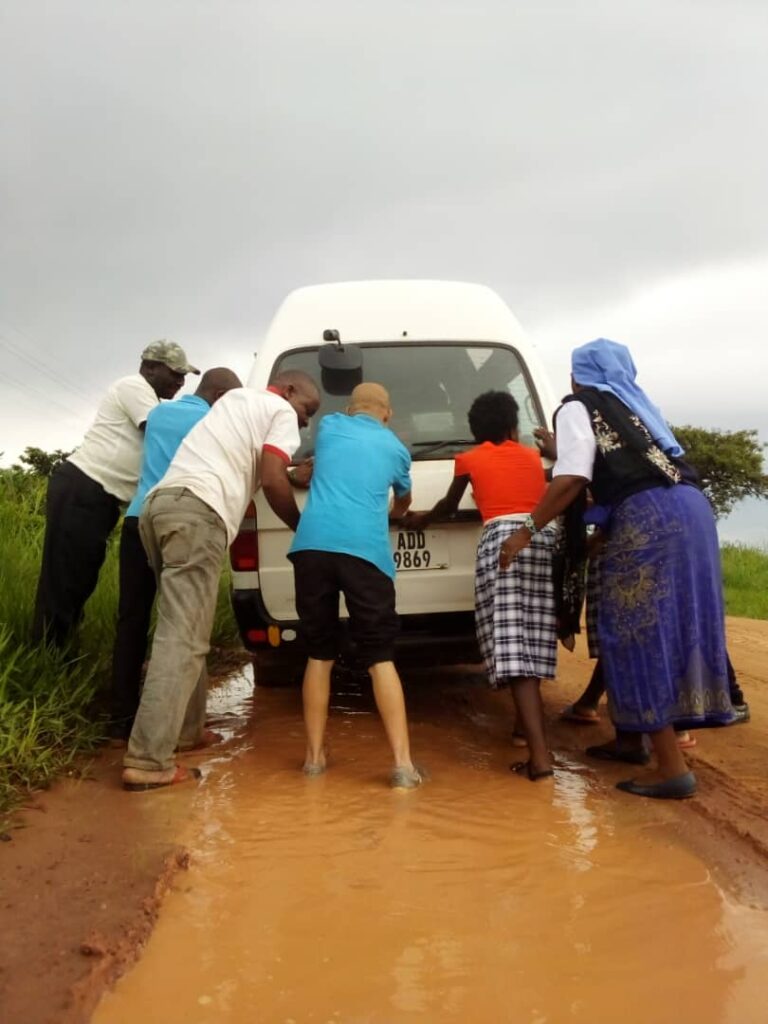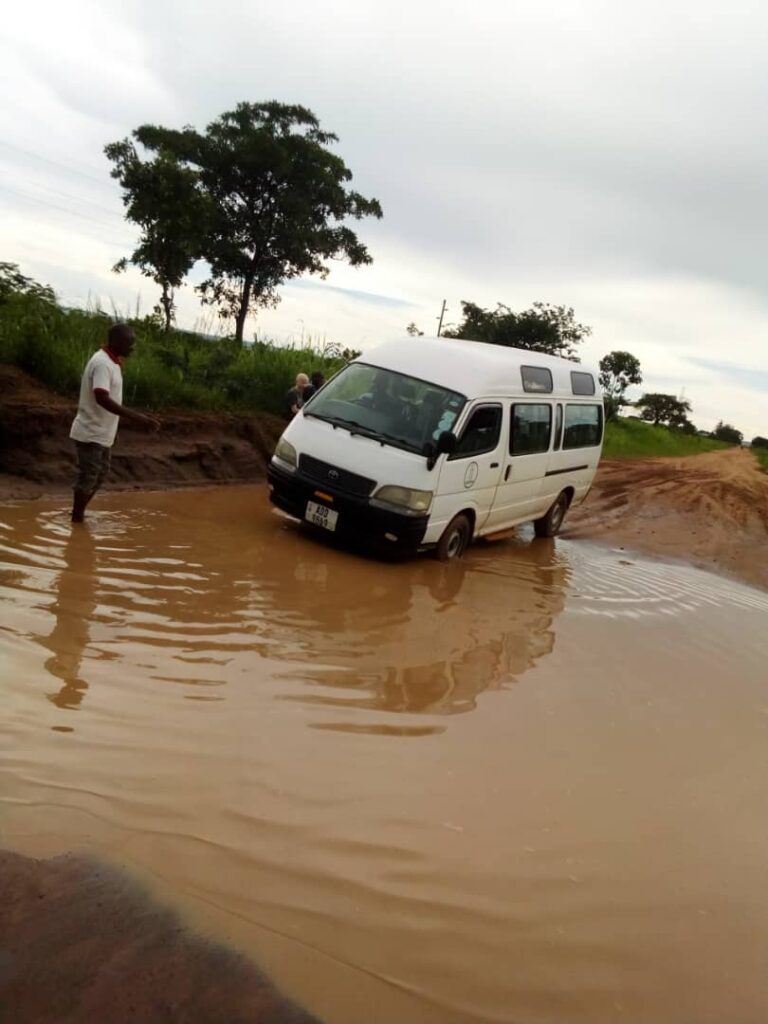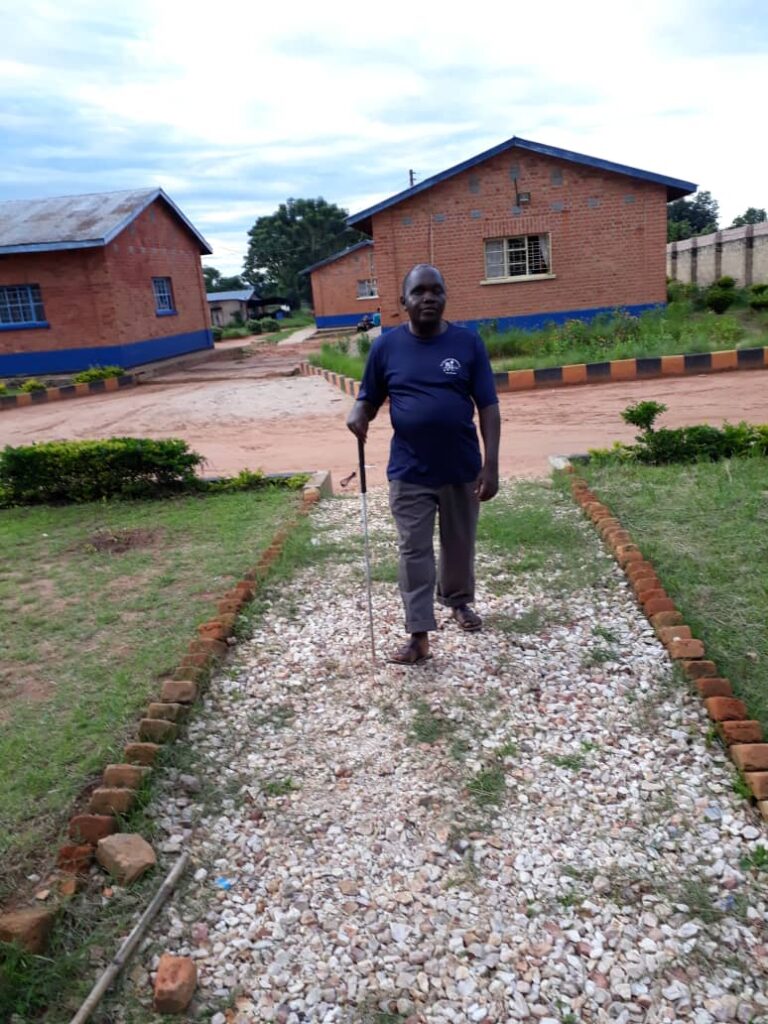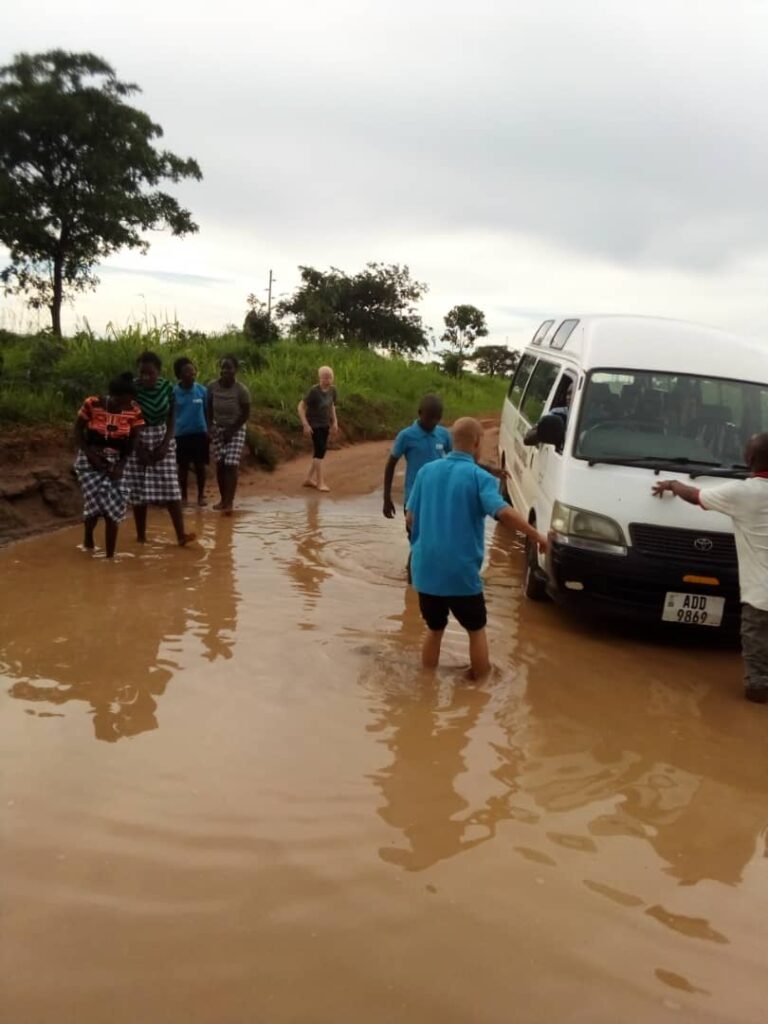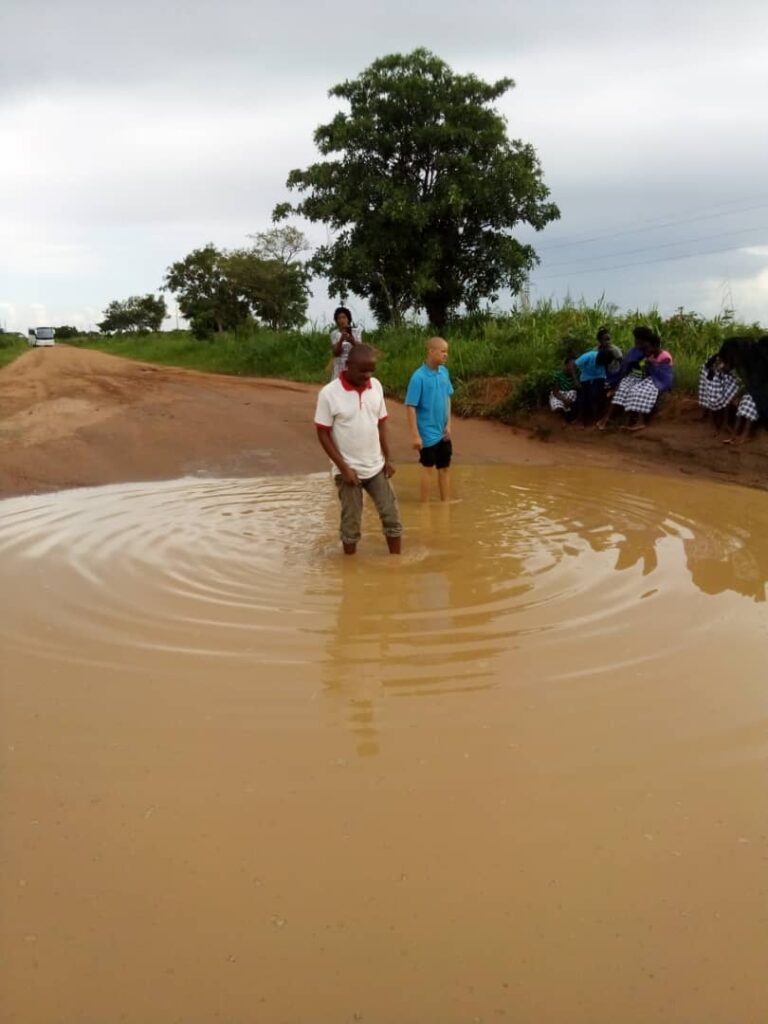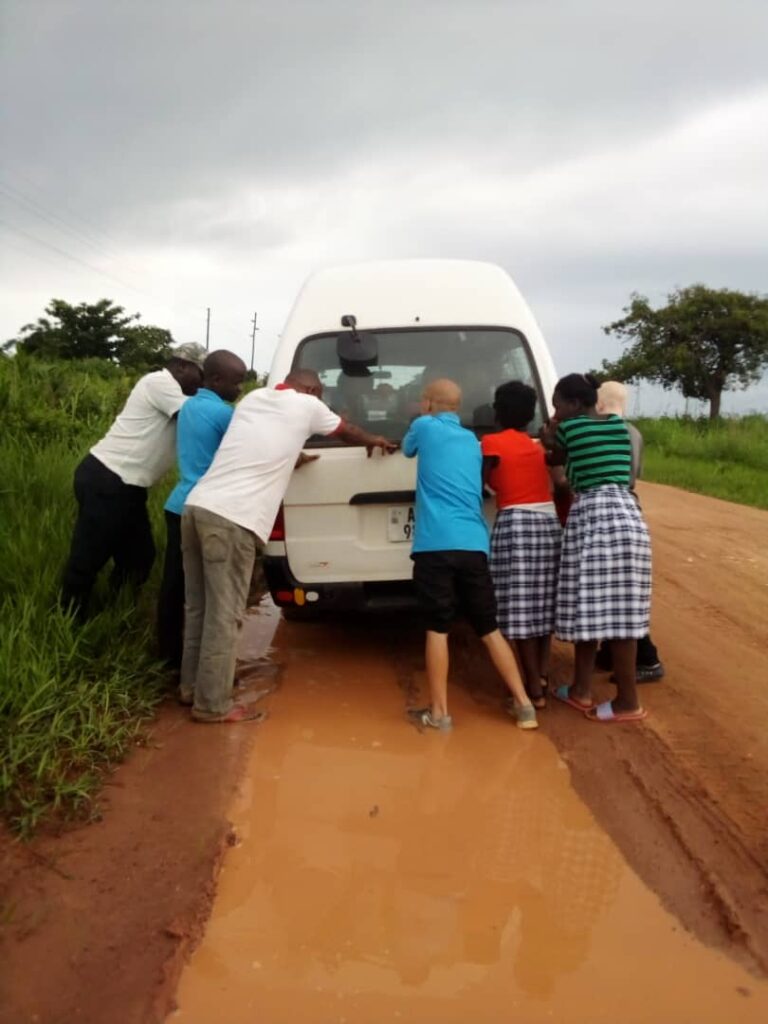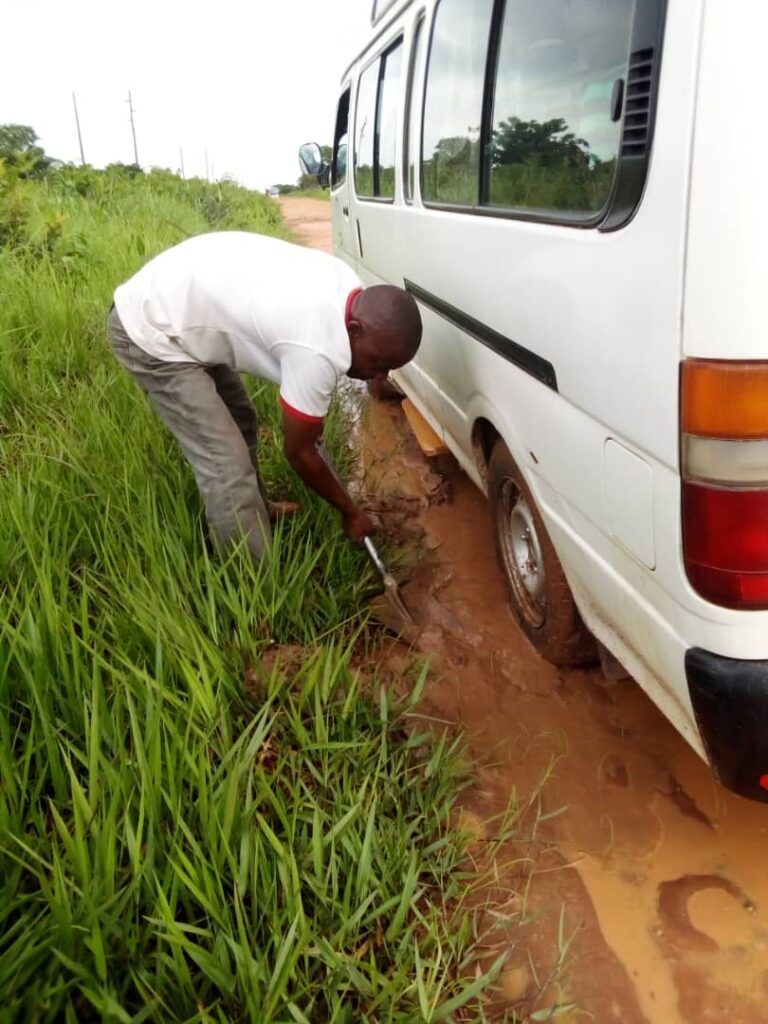TRANSPORTATION IS A GREAT CHALLENGE AT ST. MARY’S SPECIAL SCHOOL – KAWAMBWA.
St. Mary’s Special school serves children between the age of 5 to 25 years who come from diverse parts of Zambia. The school caters to children with multiple disabilities; blind and visually impaired, deaf, special needs and physically disabled. The present teaching staff also includes teachers with visual impairments; six totally blind, eight partially sighted and two teachers with albinism.
Mr. Chisembe Mwansa, one of the blind teachers, tells us how the school community must strive to accommodate staff and students with varying levels of visual impairment as well as physical and intellectual needs. The school must maintain and upgrade the infrastructure of the school grounds to protect the staff and students from the ever-present threat of kidnapping and abduction. This security extends beyond the walls of the school as the children must be protected on their long journeys to and from the school to their homes in remote villages, towns, and cities.
“I’m a blind teacher and have lived in this area for many years. I have been teaching at St. Mary’s school for 22 years.” says Mr. Mwansa. “My major contribution to the school is to be the chairperson of transport. At present we use a twelve-seater bus with two main purposes; class trips to help visually impaired children become familiar with their environments and to bring students to and from school.”
The educational tours and class trips serve to help the children build a foundation on how they will navigate their environment when they leave the safe confines of the enclosed school grounds. Many of the students live in remote locations, as much as 4-5 hours away from the school in Kawambwa. Always keeping safety from abduction as a priority, the bus must have a minimum of three adults on board when traveling to gather students. The twelve-seater bus becomes very cramped with the students and their luggage as they live at the school and go home only on holidays. This means making four to five trips to transport all the children, increasing gas consumption, and exposing the students to the dangers of being abducted.
“I have personally travelled with different drivers and I have experienced all a person can experience in this rural part of Zambia. Our roads are not tarred and most of the commodities and children are found in places where roads are very bad, full of potholes and water pools. The van often gets stuck in the mud and pushing needs to be done” says Mr. Mwansa. Requiring the adults and children to push the small van to free it from the mud puts them at risk of getting injured. But when the van is too deep in the mud, they must stay there for many hours, sometimes sleeping in the van overnight and trying to free the van in the morning. This happens not only in the rainy season, but also in the dry season as most areas are sandy.
On occasions where there are children with albinism in the van, many villagers will gather around; not to help, but rather intimidate and mock the children. These long journeys are demanding and stressful for the children, especially for the smaller, more vulnerable ones.
The struggles at St. Mary’s Special school are unquestionable. “Words cannot really explain the real situation, but people’s hearts grasp it in a special way that cannot be expressed in words” says Mr. Mwansa. “My blindness tells me that mobility and orientation are the only way that can bring the world closer to a blind person.’
Note: Inverness County Cares has been supporting the needs of St. Mary’s Special School for the past two years in partnership with Chalice (Canada). Chalice has just approved a request for funding from Kawambwa to purchase a large bus to transport students safely. Inverness County Cares will be assisting in raising funds for this purpose.
Inverness County Cares always welcomes new members. Individuals who wish to donate, can use the donate button on our website https://invernesscountycares.com
When using E-transfer, please include your mailing address for CRA tax receipts and thank you. E-transfer address: [email protected]
or send a cheque to Inverness County Cares Box 99, Judique, NS, Canada, B0E1P0. Taxation receipts provided for USA and Canada.
